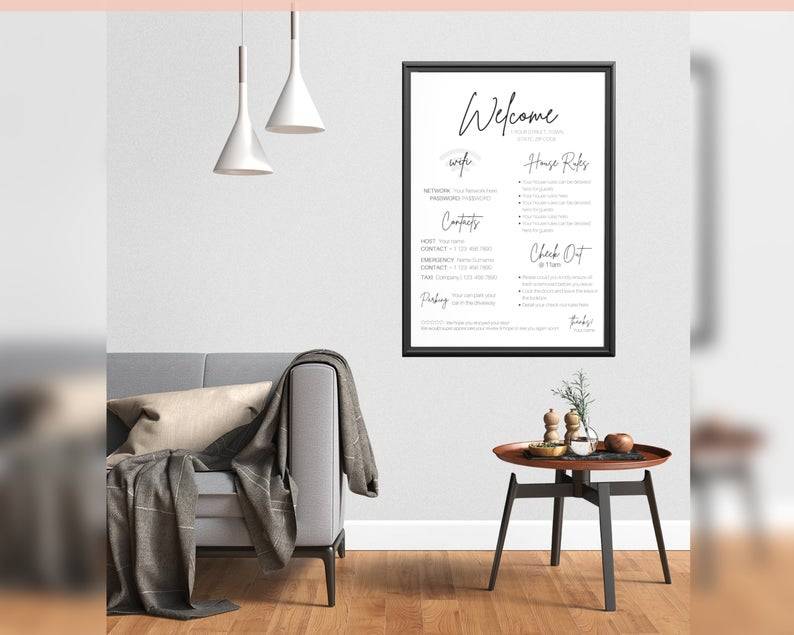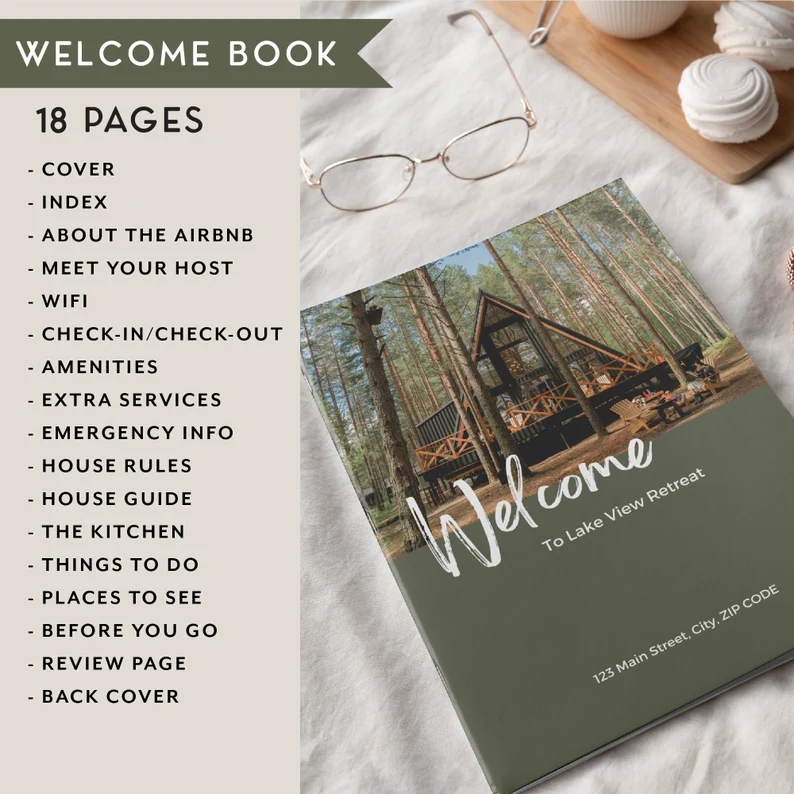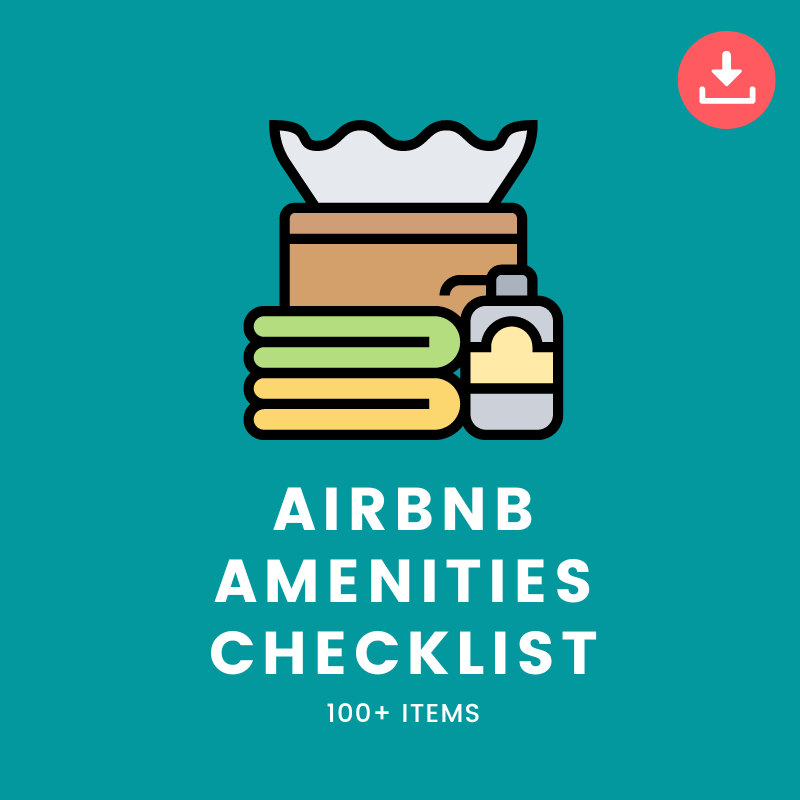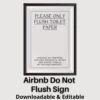Introduction
Welcome to our in-depth guide on mastering the art of guest communication as an Airbnb host.
In the ever-evolving world of short-term rentals, the key to standing out and ensuring a memorable stay for your guests lies not just in the aesthetics of your space or the amenities you offer, but significantly in how effectively you communicate.
Communication is the backbone of the Airbnb experience. It begins the moment a potential guest clicks on your listing and continues well beyond their check-out.
As a host, your ability to convey information clearly, respond to queries promptly, and understand the diverse needs of your guests can dramatically influence the success of your rental business. Not only does it enhance the guest experience, but it also builds trust, encourages positive reviews, and often leads to repeat bookings.
In this blog post, we aim to provide you with actionable tips and strategies to improve your communication with guests. Whether you’re new to Airbnb hosting or looking to refine your skills, these insights will help you navigate through various guest interactions with ease and professionalism. From understanding your guests’ profiles to managing emergencies, we’ve got you covered.
So, let’s dive into the world of effective guest communication and discover how you can elevate your Airbnb hosting to the next level!
Section 1: Understanding Your Guests
Effective communication with your Airbnb guests starts with understanding who they are and what they need. This section delves into the nuances of getting to know your guests and adapting your communication style to suit their preferences.
1.1: Getting to Know Your Guests
The Importance of Reading Guest Profiles
Before you send that welcome message, take a moment to read your guest’s profile. Airbnb profiles often provide valuable insights into who your guests are, their previous stays, and reviews from other hosts. This information can be a goldmine for tailoring your communication to their specific needs and expectations.
Tips for Initial Message Exchanges
Your first message to a guest sets the tone for their entire stay. Here are some key pointers:
- Personalization: Address guests by their names and reference any specific details they might have mentioned in their booking request.
- Clarity and Conciseness: Provide clear information about check-in processes, house rules, and any other essential details. Keep it brief yet informative.
- Openness: Encourage guests to ask questions or share any special requests they might have. This not only makes them feel valued but also helps you prepare better for their stay.
1.2: Recognizing Diverse Communication Styles
Adapting to Different Types of Guests
Your guests will come from diverse backgrounds and have varying communication preferences. Here’s how to adapt:
- Business Travelers: They usually appreciate concise and professional communication. Provide them with essential details and respect their likely busy schedule.
- Families: Offer information about family-friendly amenities and local attractions. Be warm and welcoming in your tone.
- International Visitors: Be mindful of potential language barriers. Use simple language and consider providing instructions in multiple languages if possible.
By understanding and adapting to your guests’ profiles and preferences, you can create a more personalized and comfortable experience for them. This not only improves their stay but also enhances your reputation as a thoughtful and attentive host.
Section 2: Setting Clear Expectations
One of the cornerstones of effective guest communication is the ability to set clear and realistic expectations. This section explores how to communicate house rules and policies, and the importance of providing detailed check-in instructions.
2.1: House Rules and Policies
Effectively Communicating Your House Rules
Clear communication of house rules and policies is crucial for a smooth Airbnb experience. Here’s how to do it effectively:
- Pre-Booking Information: Ensure your listing accurately describes your house rules and policies. This helps guests know what to expect before they book.
- Welcome Message: Once a booking is confirmed, reiterate the most important rules in your welcome message. This reinforces expectations.
- In-House Guidebook: Consider having a physical or digital guidebook in your property that outlines all rules and policies in detail.
Using the Airbnb Platform for Documentation
Make full use of the Airbnb platform:
- Utilize the ‘House Rules’ section on your listing page.
- Encourage guests to read through the rules as part of the booking process.
2.2: Providing Detailed Check-in Instructions
The Importance of Clear Check-in Instructions
A smooth check-in process sets the stage for a positive stay. Here’s how to ensure your instructions are foolproof:
- Timely Communication: Send check-in instructions a few days before the guest’s arrival. This gives them time to ask questions or clarify details.
- Step-by-Step Guide: Provide a detailed, step-by-step process for check-in. Include information on key collection, parking, and how to find your property.
- Visual Aids: Consider adding photos or a short video guide to help guests visualize the process.
Tools and Methods for Sharing Instructions
Leverage various tools for effective communication:
- Airbnb App: Use the app to send instructions and be available for any last-minute questions.
- Email or PDF Guides: For guests who prefer it, email detailed guides or check-in instructions in PDF format.
By setting clear expectations through effective communication of house rules and detailed check-in instructions, you not only ensure compliance but also reduce the likelihood of misunderstandings and potential conflicts during the stay.
Section 3: Proactive Communication
Proactive communication is key in providing a superior guest experience. This section offers strategies for communicating with guests before their arrival and during their stay to ensure they have all the information they need and feel fully supported.
3.1: Pre-Arrival Communication
Checklist of Information to Share Before Guests Arrive
Effective pre-arrival communication involves more than just sending check-in details. Here’s a checklist of information you should consider sharing:
- Local Transportation Tips: Directions to your property from major transport hubs, and tips on the best local transit options.
- Weather and Packing Suggestions: Inform guests about typical weather conditions during their stay and suggest appropriate attire.
- Local Recommendations: Share a list of your favorite local eateries, attractions, and hidden gems.
Timing and Frequency of Communication
- Initial Contact: Send a friendly message right after booking confirmation, thanking them and offering assistance.
- One Week Prior: A week before their arrival, share detailed check-in instructions and other relevant information.
- Day Before Arrival: A quick check-in to confirm their expected arrival time and offer any last-minute assistance.
3.2: During the Stay
Maintaining an Open Line of Communication
Once your guests have checked in, it’s important to remain accessible:
- Check-In Message: Send a message after their arrival to ensure they’ve settled in comfortably and to remind them you’re available if they need anything.
- Responsive Support: Be prompt in responding to any queries or issues that arise during their stay.
Balancing Helpfulness and Respect for Privacy
While being available is crucial, it’s equally important to respect your guests’ privacy:
- Avoid unnecessary contact or visits to the property.
- Make it clear that you are available when needed, but give them space to enjoy their stay independently.
Proactive communication, both before and during the stay, not only enhances the guest experience but also helps in building trust and rapport. It shows your commitment to their comfort and well-being, setting the stage for positive reviews and repeat bookings.
Section 4: Handling Challenges and Emergencies
Even the most well-prepared hosts can encounter challenges and emergencies. This section provides guidance on how to manage guest concerns effectively and communicate during emergencies.
4.1: Managing Guest Concerns
Tips for Responding to and Resolving Guest Issues Promptly and Effectively
When issues arise, your response can significantly impact the guest’s overall experience. Here’s how to handle it:
- Prompt Response: Address guest concerns as quickly as possible. A swift response can prevent minor issues from escalating.
- Listen and Empathize: Show that you understand their concerns. Empathy can go a long way in diffusing tension and building trust.
- Offer Practical Solutions: Provide clear, practical solutions to resolve the issue. If it can’t be solved immediately, explain the steps you’re taking to address it.
- Follow-Up: After resolving the issue, follow up to ensure that the guest is satisfied with the outcome.
The Importance of Empathy and Understanding in Difficult Situations
- Remember that every guest’s concern is valid from their perspective.
- Maintain a calm and professional demeanor, even if the guest is upset.
4.2: Emergency Preparedness
How to Communicate with Guests During Emergencies
In case of an emergency, clear and calm communication is crucial:
- Immediate Notification: Inform guests immediately about any emergency situation, providing clear instructions if action is needed on their part.
- Provide Clear Guidelines: Offer guidance on emergency procedures, like the location of fire extinguishers, emergency exits, and local emergency services.
- Stay Informed: Keep yourself informed about the situation so you can pass on accurate and timely information to your guests.
Preparing Guests for Potential Issues
- Share a list of emergency contacts and procedures as part of your welcome information.
- If your area is prone to specific issues (like power outages or severe weather), provide guests with information on what to expect and how to prepare.
Handling challenges and emergencies with professionalism and care not only resolves immediate concerns but also shows your commitment to guest safety and satisfaction.
Section 5: Leveraging Technology
In today’s digital age, technology plays a pivotal role in enhancing guest communication. This section explores how Airbnb hosts can utilize automation tools and various platforms to streamline communication and enhance the guest experience.
5.1: Automation Tools
Balancing Automation with Personalization
Automation can save time and ensure consistency, but it’s important to maintain a personal touch:
- Automated Messaging Tools: Use tools to send pre-arrival information, welcome messages, and check-out instructions. Customize these messages to make them feel personal.
- Personalized Responses: For specific queries or issues, ensure you respond personally to show your guests that their concerns are being heard and addressed individually.
Efficiency vs. Personal Connection
- While automated messages are efficient for standard information, always be ready to engage in a personal conversation when needed.
- Regularly update your automated messages to keep them relevant and personalized.
5.2: Utilizing the Airbnb App and Other Platforms
Maximizing the Features of the Airbnb App for Communication
The Airbnb app offers a centralized platform for communication:
- Encourage guests to use the app for easy access to messages and important information about their stay.
- Utilize the app’s features, like the ability to send photos or directions, which can enhance the clarity of your communication.
Integrating Other Communication Tools
While the Airbnb app is a primary tool, consider other platforms for specific needs:
- Email and PDF Guides: For detailed information like local guides or house manuals.
- Messaging Apps: If a guest prefers a different platform for instant communication, be flexible but also be aware of Airbnb’s policies regarding off-platform communication.
Leveraging technology effectively in guest communication not only simplifies the process but also creates a more seamless and enjoyable experience for both hosts and guests.
Section 6: Gathering Feedback and Continuous Improvement
The final step in effective guest communication is gathering feedback and using it for continuous improvement. This section discusses strategies for post-stay communication and how to utilize guest feedback to enhance future guest experiences.
6.1: Post-Stay Communication
The Importance of Feedback from Guests
Feedback is crucial for understanding your guests’ experiences and identifying areas for improvement. Here’s how to encourage and manage feedback:
- Thank You Message: Send a personalized thank-you message after their stay, expressing appreciation for choosing your place.
- Encourage Reviews: Politely ask guests to leave a review. Highlight how their feedback is valuable to you and future guests.
- Be Responsive to Reviews: Respond to reviews, both positive and negative, to show that you value guest feedback and are committed to improving.
Best Practices for Following Up After a Guest’s Stay
- Keep the communication friendly and non-intrusive.
- Use feedback, whether direct or through reviews, to make necessary adjustments to your listing or approach.
6.2: Using Feedback for Improvement
How to Use Guest Feedback to Enhance Communication Strategies
- Identify Common Themes: Look for recurring suggestions or issues raised by guests.
- Make Adjustments: Update your listing description, house rules, check-in instructions, and communication templates based on this feedback.
- Stay Open to Change: Be willing to adapt your approach based on guest experiences and industry trends.
Continually Updating Listing Information and Communication Templates
- Regularly review and update your Airbnb listing to ensure it accurately reflects your property and any new amenities or changes.
- Revise your communication templates periodically to keep them fresh, relevant, and personalized.
The process of gathering feedback and continually improving based on guest experiences is what sets great hosts apart.

Conclusion
Effective communication is the cornerstone of a successful Airbnb hosting experience. Throughout this blog post, we’ve explored various facets of guest communication, from understanding and adapting to diverse guest needs to managing emergencies with professionalism and empathy.
We’ve seen how leveraging technology can streamline processes and enhance guest interactions, and the critical role of feedback in continuous improvement.
As an Airbnb host, your journey in mastering guest communication is ongoing. Each guest brings a unique perspective, and every interaction is an opportunity to learn and grow. Remember, the goal is not just to provide a place to stay, but to create an experience that guests will cherish and remember.
Here are the key takeaways:
- Understand Your Guests: Tailor your communication to suit different guest types and preferences.
- Set Clear Expectations: Be upfront about house rules and provide detailed check-in instructions.
- Be Proactive: Communicate essential information before and during the stay to ensure a smooth experience.
- Handle Challenges Gracefully: Address issues promptly and empathetically.
- Embrace Technology: Use automation wisely while maintaining a personal touch.
- Value Feedback: Use guest feedback as a tool for ongoing improvement.
By implementing these strategies, you can enhance your guests’ experiences, leading to higher satisfaction, better reviews, and potentially more bookings.
Continually refine your communication skills, and you will not only become an outstanding Airbnb host but also contribute to the larger community by setting a standard for excellence in hospitality.
We invite you to share your own experiences and tips in the comments below. Let’s learn from each other and continue to elevate the art of Airbnb hosting. Happy hosting!
You may also like to read;













